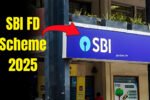FASTag New Rules 2025: The National Highways Authority of India (NHAI) has introduced groundbreaking FASTag new rules in 2025 that will transform how Indians pay tolls and travel on highways. These comprehensive changes, announced by Union Road Transport Minister Nitin Gadkari, include the introduction of an annual pass system, stricter compliance measures, and preparations for future GPS-based toll collection.
Understanding these new FASTag rules is crucial for every vehicle owner in India, as non-compliance can result in hefty penalties and travel disruptions. This complete guide covers all the essential updates you need to know about FASTag regulations in 2025.
Major FASTag Rule Changes in 2025: What’s New?
1. FASTag Annual Pass Launch – ₹3,000 for 200 Trips
The most significant change in 2025 is the introduction of the FASTag Annual Pass, launched on August 15, 2025. This revolutionary system offers:
Key Features:
- Cost: ₹3,000 for the base year 2025-26
- Validity: One year from activation OR 200 trips (whichever comes first)
- Eligibility: Private non-commercial vehicles only (cars, jeeps, vans)
- Coverage: All National Highways and National Expressways
- Activation: Within 2 hours of payment through NHAI website or Rajmargyatra App
Benefits for Frequent Travelers:
- Unlimited highway access for ₹3,000 annually
- No per-trip toll deductions for covered routes
- Significant cost savings for regular commuters
- Hassle-free travel without repeated recharges
2. Mandatory KYC Compliance for All Users
Starting 2025, KYC (Know Your Customer) completion is mandatory for all FASTag users:
Requirements:
- Aadhaar card or PAN card verification
- Mobile number verification through OTP
- Vehicle registration document validation
- Bank account linking confirmation
Consequences of Non-Compliance:
- FASTag deactivation without KYC completion
- Inability to recharge or use toll services
- Mandatory cash payment at double toll rates
3. One Vehicle, One FASTag Policy Enforcement
The “One Vehicle, One FASTag” rule is now strictly enforced:
Implementation Details:
- Only one active FASTag per vehicle registration number
- Automatic deactivation of duplicate tags
- Prevention of tag misuse and fraud
- Simplified toll plaza operations
Action Required:
- Deactivate all but one FASTag if multiple tags exist
- Ensure proper windshield installation
- Link FASTag to correct vehicle registration number
4. Enhanced Penalty Structure
New penalty rules for FASTag violations have been implemented:
Double Toll Charges:
- Vehicles without FASTag pay double toll
- Blacklisted FASTag users face double charges
- Insufficient balance results in double payment
- Commercial vehicles using private FASTags penalized
Grace Period:
- 60-minute grace period for blacklisted tags after recharge
- 10-second maximum wait time at toll plazas
- Free passage if wait exceeds 10 seconds
GPS-Based Toll System: The Future of Highway Payments
Transition from FASTag to GNSS Technology
India is preparing for a revolutionary shift to GPS-based toll collection using Global Navigation Satellite System (GNSS) technology:
Expected Timeline:
- Pilot testing currently underway
- Full implementation expected by 2026-2027
- Gradual phase-out of physical toll plazas
- Integration with existing FASTag infrastructure
Benefits of GPS-Based System:
- No stopping at toll plazas required
- Distance-based toll calculation
- Real-time tracking and billing
- Reduced traffic congestion
- Environmental benefits from reduced fuel consumption
How It Works:
- Satellite tracking of vehicle movement
- Automatic toll calculation based on distance traveled
- Direct deduction from linked bank accounts
- Seamless integration with navigation systems
Distance-Based Toll Calculation: New Pricing Model
Shift from Fixed to Variable Pricing
2025 introduces kilometer-based toll charges across Indian highways:
New Pricing Structure:
- Toll charges based on actual distance traveled
- Rates vary between ₹1.50-2.50 per kilometer
- Different rates for vehicle categories
- Dynamic pricing during peak hours
Technology Implementation:
- ANPR (Automatic Number Plate Recognition) cameras
- FASTag integration for seamless billing
- Real-time distance calculation
- Transparent billing system
FASTag Recharge Rules and Balance Requirements
Updated Recharge Norms
New recharge rules ensure smoother toll operations:
Minimum Balance Requirements:
- ₹100 minimum recharge amount
- ₹1 lakh maximum recharge limit
- Sufficient balance mandatory before travel
- Automatic low-balance alerts via SMS
Blacklisting Prevention:
- Maintain adequate balance at all times
- Immediate recharge upon low balance warning
- 60-minute grace period for balance restoration
- Multiple payment options available
Recharge Methods and Channels
Digital Recharge Options:
- Bank mobile apps (HDFC, ICICI, SBI, etc.)
- UPI payments (PhonePe, Google Pay, Paytm)
- Net banking services
- Official NHAI and issuer websites
- Dedicated FASTag mobile applications
Physical Recharge Points:
- Toll plaza customer service centers
- Authorized bank branches
- Point-of-sale terminals
- Highway service stations
Exemption Rules and Special Categories
Who Gets Toll Exemptions in 2025?
Certain vehicle categories remain exempt from toll payments:
Exempt Vehicle Categories:
- Two-wheelers (motorcycles and scooters)
- Three-wheelers (auto-rickshaws, tempos)
- Emergency vehicles (ambulances, fire trucks)
- Government vehicles (with valid ID)
- Electric vehicles (specific categories)
- Vehicles for physically disabled persons
Exemption Process:
- Free exempted FASTag issuance through NHAI
- Valid ID card display mandatory
- Annual renewal for private vehicles
- 5-year validity for government vehicles
Documentation Requirements
For Exempted FASTag Application:
- Vehicle registration certificate
- Relevant exemption documents
- Valid government-issued ID
- Disability certificate (if applicable)
- Official authorization letters
Technology Integration and Security Features
Enhanced Security Measures
2025 brings improved security features to prevent FASTag misuse:
Advanced Security Features:
- RFID encryption technology
- Vehicle number plate verification
- Real-time fraud detection systems
- Biometric verification for high-value transactions
Anti-Fraud Mechanisms:
- Automatic tag deactivation for suspicious activity
- Cross-verification with traffic cameras
- Machine learning algorithms for pattern recognition
- 24/7 monitoring systems
Mobile App Enhancements
MyFASTag App Features:
- Real-time balance checking
- Color-coded tag status indication
- Transaction history access
- Low balance notifications
- Customer support integration
Status Color Codes:
- Green: Sufficient balance, active tag
- Yellow: Low balance warning
- Red: Blacklisted tag, requires immediate action
Regional Implementation and Highway Coverage
Pan-India Coverage Expansion
FASTag services now cover extensive highway networks:
Current Coverage:
- Over 750 toll plazas operational
- All National Highway toll plazas included
- 100+ State Highway toll plazas covered
- Major expressways fully integrated
Expansion Plans:
- Rural highway integration by 2026
- State road toll implementation
- International border crossing preparation
- Smart city integration projects
Cost Analysis: Annual Pass vs Regular Usage
Financial Benefits Calculation
For Daily Commuters: Regular toll expenses for frequent travelers can easily exceed ₹10,000-15,000 annually. The ₹3,000 annual pass offers substantial savings.
Break-Even Analysis:
- Average toll cost: ₹50-100 per trip
- Break-even point: 30-60 trips annually
- Maximum trips allowed: 200 per year
- Potential savings: ₹7,000-12,000 annually
Ideal Candidates for Annual Pass:
- Daily office commuters using highways
- Weekend travelers to hometowns
- Business professionals with regular travel
- Tourist and leisure travelers
Compliance Guidelines and Best Practices
Essential Compliance Requirements
Mandatory Actions for Vehicle Owners:
- FASTag Installation: Properly affix on windshield
- KYC Completion: Submit required documents
- Balance Maintenance: Keep adequate funds
- Regular Updates: Monitor rule changes
- Document Verification: Ensure correct vehicle linking
Avoiding Penalties and Issues
Best Practices:
- Check balance before long trips
- Keep backup payment methods ready
- Update mobile number for alerts
- Regularly review transaction history
- Report lost or damaged tags immediately
Future Roadmap: What to Expect Beyond 2025
Technology Evolution
Upcoming Developments:
- Full GPS-based toll implementation
- Integration with smart vehicle systems
- Blockchain-based secure transactions
- AI-powered traffic management
- Electric vehicle charging integration
Policy Evolution
Expected Changes:
- Dynamic toll pricing based on traffic density
- Carbon footprint-based toll discounts
- Integration with fuel pricing systems
- Cross-border toll payment facilitation
- Digital infrastructure investments
Troubleshooting Common FASTag Issues
Problem Resolution Guide
Common Issues and Solutions:
Issue 1: FASTag Not Detected
- Cause: Improper installation or damaged tag
- Solution: Reinstall properly or replace tag
Issue 2: Insufficient Balance Despite Recharge
- Cause: Transaction processing delay
- Solution: Wait 2-4 hours or contact issuer
Issue 3: Tag Blacklisted Unexpectedly
- Cause: Multiple negative balance instances
- Solution: Clear dues and request reactivation
Issue 4: Annual Pass Not Working
- Cause: Incorrect vehicle registration or installation
- Solution: Verify details and contact NHAI support
Customer Support and Assistance
Getting Help When Needed
Support Channels:
- NHAI Helpline: 1033 (24/7 support)
- MyFASTag App: In-app chat support
- Bank Customer Care: Issuer-specific support
- Toll Plaza Assistance: On-site help desks
- Official Websites: FAQs and troubleshooting guides
Emergency Procedures:
- Report lost/stolen tags immediately
- Use alternative payment methods at tolls
- Collect receipts for reimbursement
- Follow up with issuer for resolution
Impact on Different Vehicle Categories
Private Vehicles
Benefits:
- Annual pass option saves money
- Streamlined highway travel
- Reduced waiting times
- Digital convenience
Challenges:
- Initial annual pass investment
- Learning curve for new rules
- Technology dependence
Commercial Vehicles
Implications:
- Continued pay-per-use model
- Enhanced monitoring systems
- Stricter compliance requirements
- Operational cost considerations
Adaptations Required:
- Fleet-wide FASTag implementation
- Driver training on new rules
- Financial planning for toll costs
- Technology integration
Environmental and Economic Impact
Positive Environmental Effects
Environmental Benefits:
- 20% reduction in CO2 emissions at toll plazas
- 15% fuel savings from reduced idling
- Decreased traffic congestion
- Lower vehicle maintenance costs
Economic Impact:
- Faster goods movement across country
- Reduced logistics costs
- Improved highway infrastructure ROI
- Enhanced digital payment adoption
Conclusion: Navigating the New FASTag Landscape
The FASTag new rules of 2025 represent a significant leap toward modernizing India’s highway infrastructure and toll collection systems. These changes, while initially requiring adaptation, promise long-term benefits for frequent travelers, the environment, and the overall transportation ecosystem.
Key Takeaways for Vehicle Owners:
- Immediate Action Required: Complete KYC and ensure FASTag compliance
- Consider Annual Pass: Evaluate if ₹3,000 annual pass suits your travel patterns
- Stay Informed: Monitor updates from NHAI and transport ministry
- Prepare for GPS Transition: Future-proof your vehicle for satellite-based tolling
- Maintain Compliance: Follow all rules to avoid penalties and delays
Strategic Recommendations:
For frequent highway users, the annual pass offers exceptional value and convenience. Occasional travelers should maintain adequate FASTag balance and stay updated on rule changes. Commercial vehicle operators must ensure fleet-wide compliance and budget for enhanced monitoring requirements.
The transition to GPS-based tolling in the coming years will further revolutionize highway travel, making the current adaptation to new FASTag rules a crucial stepping stone toward India’s smart transportation future.
By understanding and following these new FASTag rules, Indian vehicle owners can ensure smooth, economical, and hassle-free highway travel while contributing to the nation’s digital infrastructure advancement.
Stay Updated: Regularly check official NHAI notifications, as rules and implementations may evolve. Always verify the latest information from authorized sources before making travel or financial decisions related to FASTag services.
The future of Indian highway travel is digital, efficient, and user-centric – and these new FASTag rules are the foundation of that transformation.












